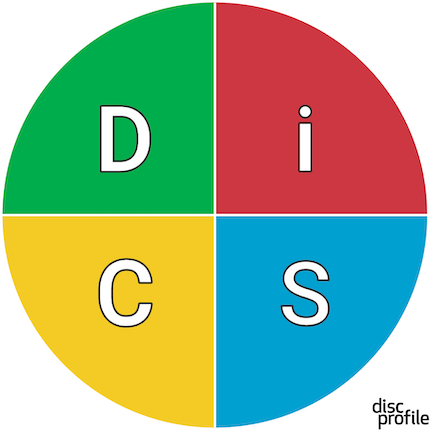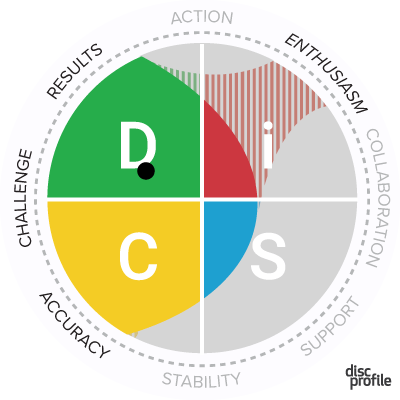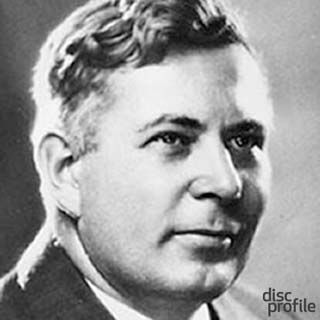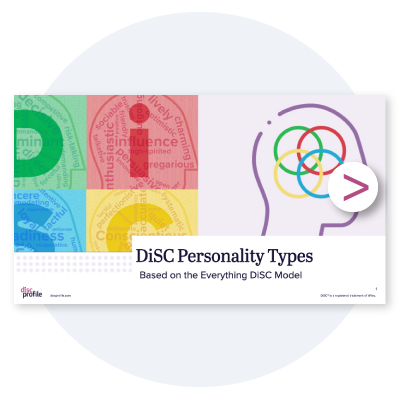
What is DiSC®?
Deepen your understanding of yourself and others

A common language
The Everything DiSC® model provides a common language people can use to better understand themselves and those they interact with—and then use this knowledge to reduce conflict and improve working relationships. Your DiSC report focuses on your personality and behavioral style, describing your behavior in various situations—for example, how you respond to challenges, how you influence others, what is your preferred pace, and how you respond to rules and procedures. This in turn will help you ignite teamwork, leadership, and communication in the workplace and beyond.

DiSC is an acronym that stands for the four main personality profiles described in the DiSC model: (D)ominance, (i)nfluence, (S)teadiness and (C)onscientiousness.
People with D personalities tend to be confident and place an emphasis on accomplishing bottom-line results.
People with i personalities tend to be more open and place an emphasis on relationships and influencing or persuading others.
People with S personalities tend to be dependable and place an emphasis on cooperation and sincerity.
People with C personalities tend to place an emphasis on quality, accuracy, expertise, and competency.
Everything DiSC also measures priorities (the words around the circle), providing more nuanced and memorable feedback in profiles.
The process is simple:
- Take a short DiSC personality assessment to determine where you “fit” into the four main personality reference styles. The adaptive DiSC personality test itself takes 15 to 20 minutes and includes approximately 80 questions.
- Upon completion you’ll receive a personalized profile where you’ll learn about your unique behavioral style, strategies for engaging with others, your needs, and preferred environment. Learn more about how the DiSC personality test works.
- Many organizations conduct facilitated DiSC sessions that help team members discover how to apply the information in their profiles to their day-to-day work.
There are a variety of different types of DiSC assessment products depending on your overall goal (becoming a better leader, improving management skills, growing your selling skills, etc.), so if you need help deciding on the right solution for yourself, your team or your organization, our customer service team is here to help!

DiSC assessments are extensively researched and time-tested. The publisher of DiSC personality tests, Wiley, is one of the world’s oldest and most respected publishers of scientific and technical references. Wiley and many others have been researching, analyzing, and improving the DiSC model for more than 40 years.




